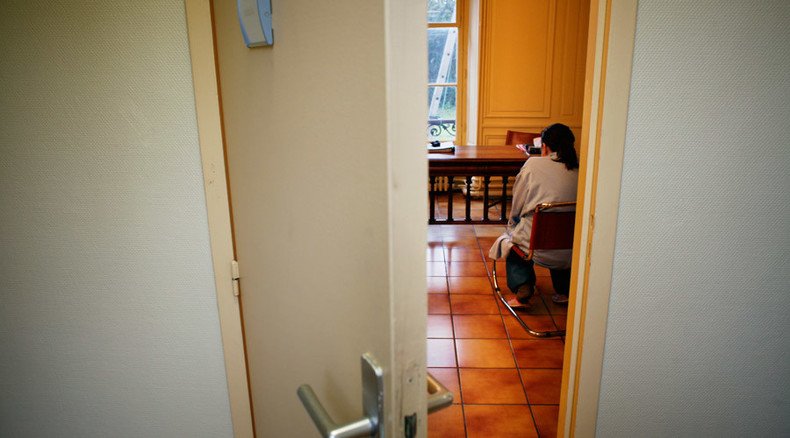Mental Health Services In Ghana: Examining The Severe Shortage Of Psychiatrists

Table of Contents
The Severity of the Psychiatrist Shortage in Ghana
The current number of psychiatrists in Ghana is drastically insufficient to meet the needs of the population. Compared to the World Health Organization (WHO) recommendations of at least one psychiatrist per 10,000 people, Ghana falls far short. Precise figures vary depending on the source, but the consensus points to a severe deficit. This shortage is further exacerbated by an uneven distribution of psychiatrists across the country. Urban areas have a disproportionately higher concentration of mental health professionals, leaving rural communities severely underserved and with limited access to essential mental healthcare.
- Statistical data illustrating the shortage: Reliable statistics on the exact number of psychiatrists are limited, highlighting the need for improved data collection within the Ghanaian healthcare system. However, anecdotal evidence from healthcare providers consistently points to significant shortages across the country.
- Comparison with other African countries: While many African countries face similar challenges in providing adequate mental health services, the psychiatrist-to-population ratio in Ghana is particularly concerning when compared to neighboring nations with better-established mental health infrastructure.
- Impact on waiting times for mental health treatment: The shortage leads to excessively long waiting times for appointments, assessments, and treatment, often delaying crucial interventions and exacerbating existing mental health conditions. This delay can significantly worsen prognoses and limit the effectiveness of treatments.
Consequences of the Shortage
The consequences of the severe psychiatrist shortage in Ghana are multifaceted and far-reaching, impacting individuals, healthcare systems, and the national economy.
Limited Access to Care
The insufficient number of psychiatrists directly translates to limited access to timely and appropriate mental health services. This has several detrimental effects:
- Increased stigma and reluctance to seek help: The lack of readily available mental health professionals reinforces existing stigma surrounding mental illness, making individuals hesitant to seek help. This fear of judgment and discrimination further isolates those who need support the most.
- Delayed or absent diagnosis and treatment: Long waiting lists and limited access lead to delays in diagnosis and treatment, resulting in a worsening of mental health conditions. Early intervention is crucial in many mental health conditions, and the shortage prevents this crucial step.
- Worsening mental health conditions due to lack of intervention: Untreated or inadequately treated mental health conditions can lead to severe consequences, including self-harm, suicide, and chronic disability. The lack of access to care contributes directly to increased suffering and a decline in overall well-being.
Strain on Existing Mental Healthcare Professionals
The burden of inadequate mental healthcare provision falls disproportionately on other healthcare professionals, particularly general practitioners and nurses. These professionals often lack the specialized training and resources to manage complex mental health cases effectively.
- Burnout among healthcare workers: Overworked and under-resourced healthcare professionals experience high rates of burnout, impacting their ability to provide quality care. This further diminishes the already strained mental healthcare system.
- Compromised quality of care due to overwork: The increased workload and lack of specialized support compromise the quality of care that patients receive. Overstretched healthcare professionals may not have the time to provide adequate assessment, diagnosis, and treatment.
- Increased patient-to-staff ratios: The imbalance between the number of patients and available mental health professionals leads to high patient-to-staff ratios, further hindering the quality and effectiveness of care.
Economic Burden
The economic impact of untreated mental illness in Ghana is substantial. The consequences include decreased productivity, increased healthcare costs, and a significant social cost.
- Reduced workforce participation due to mental illness: Untreated mental illness leads to reduced workforce participation and decreased productivity, impacting the national economy.
- Increased hospitalization costs for severe cases: The lack of early intervention and access to treatment leads to more severe cases requiring hospitalization, resulting in significantly higher healthcare costs.
- The social cost of untreated mental health issues (e.g., crime, family breakdown): Untreated mental illness can contribute to social problems such as crime, family breakdown, and social unrest, imposing further costs on society.
Potential Solutions and Strategies
Addressing the severe shortage of psychiatrists in Ghana requires a multi-pronged approach focused on increasing the number of professionals, expanding access to services, and tackling the stigma surrounding mental illness.
Increasing the Number of Psychiatrists
Investing in the training and retention of psychiatrists is critical. This requires:
- Investing in psychiatric training programs and medical schools: Expanding and strengthening existing psychiatric training programs within medical schools and establishing new specialized training centers.
- Offering scholarships and incentives to attract students to psychiatry: Providing financial incentives and scholarships to attract students to the field of psychiatry and encourage them to pursue careers in Ghana.
- Creating supportive work environments to reduce burnout: Creating supportive and well-resourced work environments to reduce burnout and encourage retention among existing psychiatrists.
Expanding Access to Mental Healthcare Services
Improving accessibility, especially in rural areas, is essential. This could involve:
- Tele-mental health initiatives: Utilizing technology to extend mental health services to underserved areas through tele-mental health platforms.
- Training community health workers to provide basic mental health services: Training community health workers to provide basic mental health services and screen for common mental health problems.
- Integration of mental health services into primary care settings: Integrating mental health services into primary care settings to improve accessibility and early detection.
Addressing Stigma and Promoting Mental Health Awareness
Reducing stigma is paramount to increasing help-seeking behavior. This requires:
- Public awareness campaigns through media and community events: Implementing widespread public awareness campaigns to educate the public about mental illness and reduce stigma.
- Education programs in schools and workplaces: Integrating mental health education into school curriculums and workplace training programs.
- Engaging religious and community leaders: Engaging religious and community leaders to help challenge stigma and promote help-seeking behaviors within their communities.
Conclusion
The severe shortage of psychiatrists in Ghana is a significant obstacle to providing universal access to quality mental healthcare. Addressing this challenge necessitates a comprehensive strategy. By investing in training programs, expanding access to services through innovation, and actively combating stigma surrounding mental illness, Ghana can dramatically improve the mental well-being of its citizens. Let's collaborate to strengthen mental health services in Ghana and build a healthier, more equitable future for all Ghanaians.

Featured Posts
-
 International Harry Potter Day Find The Perfect Themed Merchandise Online
May 03, 2025
International Harry Potter Day Find The Perfect Themed Merchandise Online
May 03, 2025 -
 Significant Asset Reduction At Schroders Q1 Market Impact
May 03, 2025
Significant Asset Reduction At Schroders Q1 Market Impact
May 03, 2025 -
 Is Havertz An Epl Flop Sounesss Harsh Assessment Of Arsenal Signing
May 03, 2025
Is Havertz An Epl Flop Sounesss Harsh Assessment Of Arsenal Signing
May 03, 2025 -
 Slah Wjw 24 Rsalt Thdhyr Bshan Alwde Alhsas
May 03, 2025
Slah Wjw 24 Rsalt Thdhyr Bshan Alwde Alhsas
May 03, 2025 -
 Ray Epps Defamation Suit Against Fox News Details Of The January 6th Allegations
May 03, 2025
Ray Epps Defamation Suit Against Fox News Details Of The January 6th Allegations
May 03, 2025
